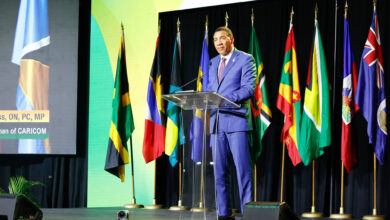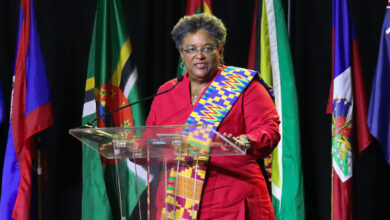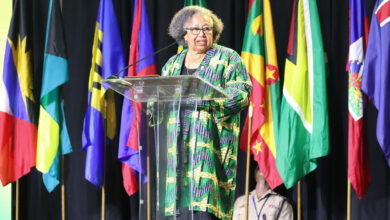Caribbean Community (CARICOM) officials are upbeat on the Region's preparations for the new round of negotiations with the European Union aimed at securing new Economic Partnership Agreements (EPAs). The negotiations are due to start in September 2002.
At the launching of a Regional Seminar in Georgetown, Guyana, on 14 February 2002, in preparation for these negotiations, officials expressed optimism for “candid and frank” discussion in what they consider to be “a significant activity”. The Caribbean is being positioned to strengthen its links within the African, Caribbean and Pacific (ACP) grouping, while looking to enhance economic opportunities for the Member States of the Community and to progressively integrate them and other ACP Member States into the global economy.
In delivering his feature address to the Opening Ceremony, of the three-day regional seminar, the Hon. Clement Rohee, Minister of Foreign Trade and International Co-operation, Guyana, noted that “The Caribbean ACP States were at a very delicate juncture in their relationship with the European Union. He posited: “While the focus will be on trade, we must not lose sight of the fact that development for the benefit of our peoples, with particular emphasis on the eradication of poverty, is the principle which should guide us in the deliberations.”
In his Opening Statement to Seminar participants, Secretary General of CARIFORUM, Mr Edwin Carrington, acknowledging the constant changes taking place in the global economic environment, and their inherent effects on the trading arrangements, noted that, “For us in the Caribbean, and in the ACP Group as a whole, the negotiations for which we are preparing will herald the beginning of the end of the hallmark of our trade relations with Europe.”
The ACP Group and the European Union have already agreed on the process and calendar to put in place the new trade regime, following the signing of the Cotonou Agreement in June 2000- a twenty-year comprehensive development co-operation accord demonstrating maturing economic relationships with the ACP and the European Union.
Assistant Secretary General for Sustainable Economic Development at the ACP Secretariat, Ms Adelaide Mkhonza, stressed the significant development that these new efforts at co-operation has created, particularly because it embraces all sectors of society, including the active participation of non-state actors.
“This seminar though late, marks the beginning of a series of consultations that should have taken place following successful conclusions of the negotiations and signature of the Cotonou Agreement,” Mkhonza observed.
In addition to the seminar's primary objective to enhance preparation for future trade negotiations with the EU, Mkhonza noted that it was also meant to “create a close relationship between the Secretariats of the ACP Group and that of CARICOM”, adding that it was further fulfilling the objectives of the Cotonou Agreement by combining the forces of government, the private sector and civil society.
Head of the EU Delegation to Guyana and Suriname, H.E. Ambassador Vincent De Visscher, told participants that in clarifying the Caribbean's approach for the new trade arrangement, “One of the questions, which should be answered in the near future, relates to the geographical configuration of EPA negotiations”, adding “we expect clear indications of the needs for capacity building, which will be essential for all ACP participants in EPA negotiations.”
According to De Visscher, under the management of the ACP Secretariat, a £20 million support facility for the preparation of the EPA's has already been put in place.
The new Economic Partnership Agreements (EPA's) with the EU will inevitably replace the current preferential arrangements still enjoyed by some Member States.




